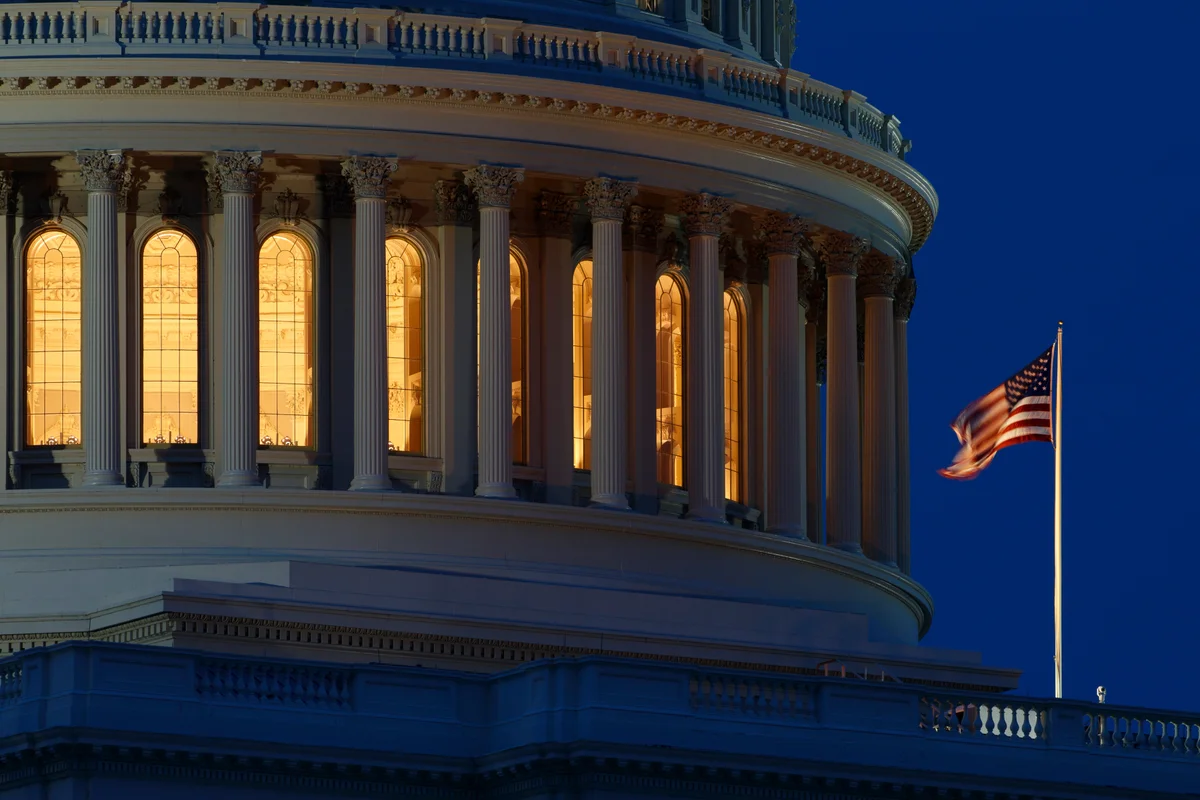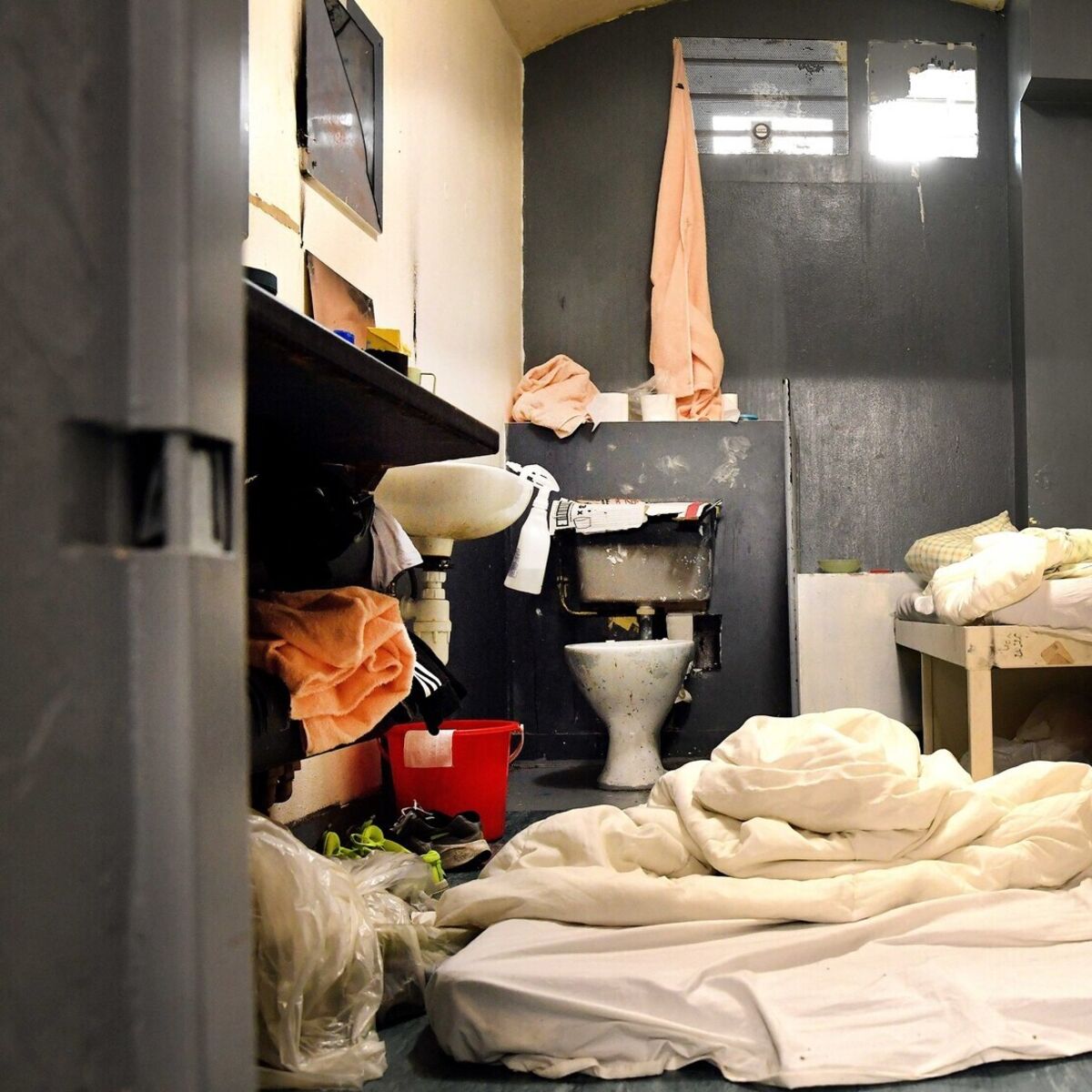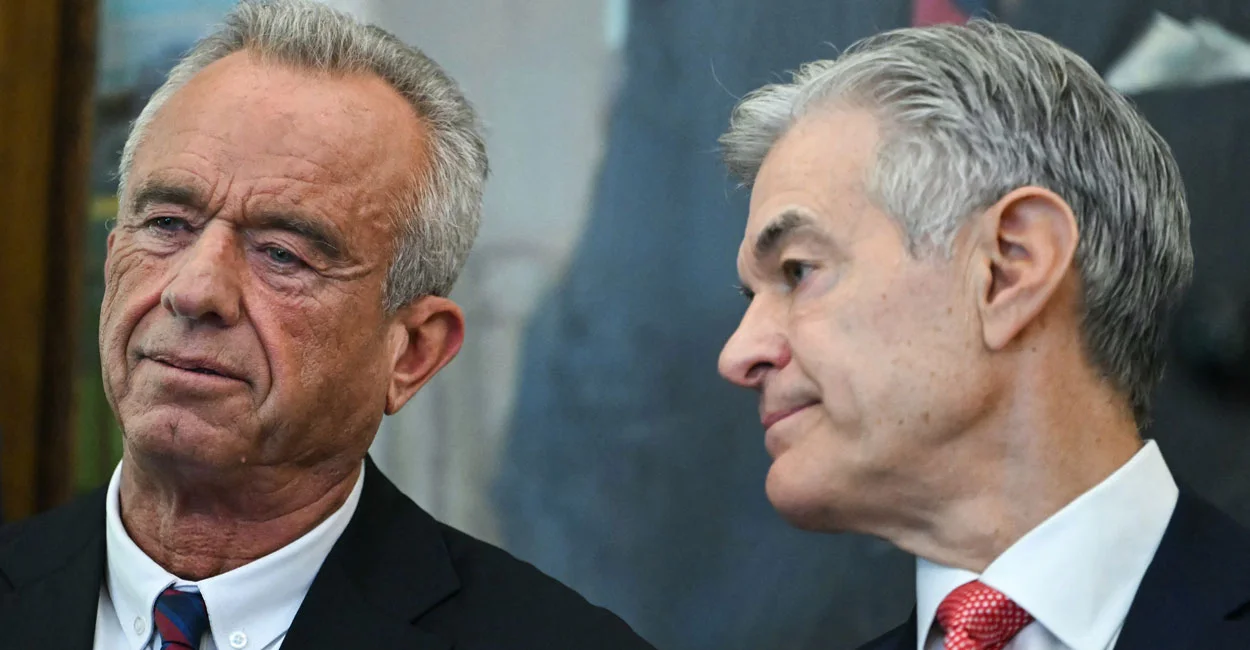Copyright independent

Eight Democrats broke with their party line and voted to reopen the government last night, marking the shutdown's 40th day. The group stated that the Republicans' “flat refusal” to budge on any of their proposals led them to believe that “this is the best possible offer we could secure,” as they issued a joint statement. The deal included a future vote on whether the government will continue to pay for enhanced Affordable Care Act subsidies. Additionally, the agreement does not guarantee that the government will continue to fund healthcare subsidies. However, the deal is expected to unlock funds for government services until January and could be tied to a larger package to fund several federal agencies. Despite this seismic shift in the shutdown stalemate, though, the deal still needs to be approved by the House before the government can officially reopen. Senate Majority Leader John Thune said that he will hold the ACA vote by the middle of next month, according to CNN, and said that he is “optimistic” that the deal will end the shutdown. Meanwhile, Democratic Senator Jeanne Shaheen from New Hampshire told the broadcaster that this was “the only deal on the table.” “Now I understand that not all of my Democratic colleagues are satisfied with this agreement, but waiting another week or another month wouldn’t deliver a better outcome,” she added. Shaheen was just one of the Democrats to break with their party’s stance on the shutdown. Throughout the crisis, the Democrats have been staunch in their position that the Republicans should not be given an inch on the questions of Medicaid and the ACA. For Senator Tim Kaine, a future vote on the future of the ACA was enough to convince him to agree to the deal. In a statement shared on X, he said that he was guided particularly by the need to protect federal workers since Virginia is home to roughly 300,000 government employees. Kaine went on to claim that the deal will “protect federal workers from baseless firings, reinstate those who have been wrongfully terminated during the shutdown, and ensure federal workers receive back pay.” Senator Dick Durbin said in a statement that “this bill is not perfect, but it takes important steps to reduce their shutdown’s hurt,” as he broke with his party by agreeing to the deal. “For 40 days—the longest shutdown in U.S. history—federal workers went without paychecks,” he continued. “This includes our air traffic controllers, whose towers were already understaffed. “They continued to work 10 hour days, six days per week to keep our airspace safe, with this additional stress at a life-saving job.” However, by agreeing to the deal, Durbin opened up a split in his own state as Senator Tammy Duckworth, the other Illinois senator, voted against the agreement. “I simply cannot, and I will not, vote to do nothing to help protect them from Trump’s vindictive and malicious efforts in exchange for a vague promise from the least trustworthy Republican party in our nation’s history,” Duckworth wrote. Durbin has confirmed that he will not be seeking reelection in 2026, after serving in the U.S. Senate for almost three decades. Jeanne Shaheen has announced that she will not seek reelection this fall, after becoming the first Democratic senator for New Hampshire since 1980. “Let’s be clear: This is a major step that was not predetermined,” she said in a statement. “I have spent years as the lead sponsor of this legislation. “There is no one in the Senate who wants to see these tax credits extended more than me. “But weeks of negotiations with Republicans have made clear that they will not address health care as part of shutdown talks.” She added that “waiting longer will only prolong the pain Americans are feeling because of the shutdown.” Senator John Fetterman broke with his fellow Senate Democrats early by voting for a House-approved short-term funding bill. “Our party could be overplaying its hand,” he said, according to CNN. “I don’t think much anything has been accomplished for the last 40 days except a lot of chaos and a lot of upheaval.” Now, Fetterman thinks that the shutdown has “more than run its course,” but acknowledged that the deal would probably get the "minimum" amount of votes to pass. In a social media post, he claimed that allowing the shutdown to take place was a “failure.” “I’m sorry to our military, SNAP recipients, gov workers, and Capitol Police who haven’t been paid in weeks,” he added. The Senator’s home state is a key swing state which carries a staggering 19 electoral college votes, the fourth most votes after New York, California and Texas. Fetterman has long been a controversial figure in his party, with representatives in Pennsylvania already gearing up to challenge him in the 2028 elections, according to CBS News. Critics have accused him of being too in line with Donald Trump, pointing to his strong support for Israel and for his absence from the “No Kings” rally in Philadelphia. "We're looking to the leaders who will fight for us, because even today there are folks among the Democratic Party who think we should roll over and play dead," Indivisible PA founder Leah Greenberg said at a No King’s rally earlier this year, according to Newsweek. "Anyone seen John Fetterman here today?" Senator Maggie Hassan was reelected to her seat in 2022. Like Fetterman, her state plays a huge role in elections due to its large number of electoral college votes and its tendency to swing between voting for Democrats and Republicans. In a statement, Hassan said that she had spoken with voters who were deeply affected by the shutdown, which led her to vote for the deal. “Our work to deliver relief for families now enters an important phase,” she wrote. “Congress has one month to engage in serious bipartisan negotiations to extend the Affordable Care Act’s expiring tax cuts that help people afford their health insurance.” Hassan has not confirmed whether she will be seeking reelection in 2026, but is expected to become the senior senator following Shaheen’s retirement. Senator Angus King said that he voted for the bipartisan deal because it “appears” that a “solution on the ACA” is unlikely. “I think people are saying we’re not going to get what we want, although we still have a chance – because part of the deal is a vote on the ACA subsidies – but in the meantime, a lot of people are being hurt,” he added, according to CNN. King is technically an independent, although he often caucuses with the Democrats and votes in alignment with the party. In 2024, he was elected to a third term by residents in Maine and is expected to run for reelection in 2028. Senator Catherine Cortez Masto won a tight 2022 race, narrowly defeating Republican Adam Laxalt, and is expected to run for reelection in the future. She told reporters on Sunday night that the government shutdown that she had witnessed “lines like I haven’t seen since the pandemic” for food banks and said that the vote could help in “stopping that pain.” Cortez Masto added that she hopes to find a solution to “the impending health care crisis,” according to Politico. Previously, she has voted to end the shutdown 15 times. Cortez Masto has made headlines in the past for being a close ally of former Vice President Kamala Harris. The pair became close after they sued big banks during the 2008 Financial Crisis, alongside Delaware Attorney General Beau Biden, for $20 billion. The money won in the lawsuits was used to support their constituents who were disproportionately affected by the market crash. Jacky Rosen joined her fellow Nevadan senator in voting to move the deal forward. In her state, over 95,000 people receive credits from the Affordable Care Act, and she said that a vote on the ACA subsidies is “the concession we’ve been able to extract.” “Trump and his Republican cronies on Capitol Hill do not give a damn about hurting working people, and their conduct over the last month has been nothing short of appalling,” she added in a public statement. It is unknown if Rosen will run again after her six years in office come to a close in 2030.



